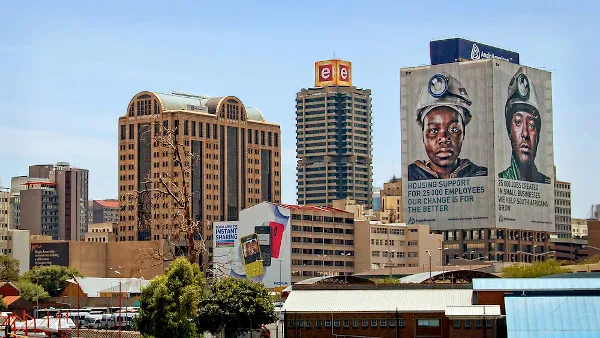One of the main strategies adopted by the South African government was fiscal consolidation. This involved reducing the budget deficit through public spending cuts and increased tax revenue.
Measures such as restricting wage increases in the public sector and reducing non-essential expenses were implemented to control the growth of public debt.
While these measures were effective in reducing the deficit, they also sparked controversy due to their negative impact on social programs and the purchasing power of public sector workers.
In particular, public sector workers faced salary freezes that affected their purchasing power and, consequently, domestic consumption. The government’s challenge was to strike a balance between necessary fiscal discipline and maintaining public sector morale and service delivery.
Tax Reforms and Revenue Increase
To increase revenue, the South African government introduced several tax reforms. Among the main changes was the increase in the Value Added Tax (VAT) rate from 14% to 15%.
Additionally, measures were implemented to improve the efficiency of tax administration and combat tax evasion.
These reforms resulted in a significant increase in government revenue, providing additional resources for investments in infrastructure and essential public services. However, there were also criticisms that the VAT increase penalized low-income families, exacerbating social inequalities.
This VAT increase disproportionately affected the poor, raising the cost of essential goods and basic services. The government tried to mitigate these impacts by zero-rating certain basic goods, but the overall burden on low-income households remained a point of contention.
Investments in Infrastructure and Economic Growth
Investments in infrastructure were a crucial component of recent fiscal policies. The government allocated significant resources to infrastructure projects, including transportation, energy, and telecommunications.
These investments aim not only to improve the quality of public services but also to create jobs and stimulate economic growth. The construction of new roads, for example, facilitates trade and mobility, while the expansion of the electricity and telecommunications network supports business development and technological innovation.
Projects such as the development of renewable energies are also crucial to ensuring long-term sustainability and reducing dependence on non-renewable energy sources. Additionally, infrastructure improvements are seen as a way to attract foreign direct investment by providing a more stable and efficient operating environment for businesses.
Impact on the Business Sector
Recent fiscal policies also had a significant impact on the business sector. Fiscal consolidation and increased tax burden raised operational costs for many companies, especially small and medium-sized enterprises (SMEs).
On the other hand, investments in infrastructure and tax incentives for strategic sectors, such as renewable energy and manufacturing, provided new growth opportunities. SMEs, in particular, benefited from government support programs aimed at improving access to finance and promoting business skills development.
However, these companies still face significant challenges, such as limited access to credit and heavy bureaucracy. The government’s efforts to streamline regulatory processes and reduce red tape are ongoing, but progress has been slow and uneven across different sectors.
Challenges and Criticisms
Despite the benefits, recent fiscal policies faced significant criticism. Fiscal austerity was pointed out as a factor that limited economic growth and exacerbated social inequality.
The VAT increase, in particular, was criticized for its disproportionate impact on low-income families. Additionally, the efficiency in implementing infrastructure projects was questioned, with delays and high costs affecting the effectiveness of investments.
The need for a balance between fiscal consolidation and economic stimulus remains a crucial challenge for policymakers. Austerity policies, while necessary to stabilize public finances, often resulted in cuts to essential services, harming the most vulnerable.
Furthermore, there have been calls for greater transparency and accountability in how public funds are allocated and spent.
Future Prospects
Looking to the future, the sustainability of fiscal policies will be crucial for South Africa’s economic recovery.
The implementation of structural reforms that promote public spending efficiency, increase economic competitiveness, and reduce social inequalities will be essential.
Additionally, strengthening fiscal institutions and promoting a favorable business environment are fundamental to attracting investment and boosting economic growth.
The government’s ability to adapt its fiscal policies in response to changing global and domestic economic conditions will be decisive for long-term economic success.
Promoting public-private partnerships can be an effective strategy to increase infrastructure investments without overburdening the public budget. Such partnerships can leverage private sector expertise and capital, leading to more efficient and innovative project delivery.
Recent fiscal policies implemented by the South African government have had a significant impact on the country’s economy.
While they managed to reduce the budget deficit and increase revenue, they also faced criticism due to their social and economic impact. The balance between fiscal austerity and growth stimulus remains a crucial challenge.
With structural reforms and strategic investments, South Africa can create a sustainable path for economic recovery and inclusive development. The key to future success will lie in the government’s ability to implement fiscal policies that balance the need for austerity with the promotion of economic growth and social inclusion.
By addressing these challenges and capitalizing on new opportunities, South Africa can achieve a more resilient and equitable economic future. Effective fiscal policies, coupled with targeted investments, will be essential in driving long-term growth, reducing inequality, and improving the overall quality of life for all South Africans.
A focus on education, healthcare, and social services will also be critical in ensuring that the benefits of economic growth are widely shared and contribute to a more cohesive society.





